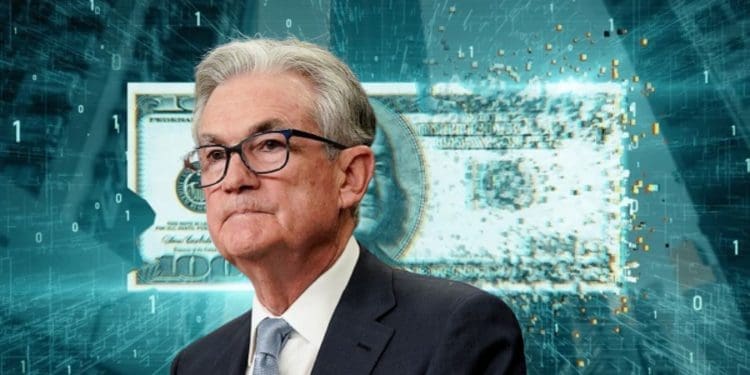- The Federal Reserve chairman said the agency is not close to recommending a central bank digital currency (CBDC) and would not want to monitor people’s spending.
- The chairman testified before the Senate Banking Committee that the Fed is “nowhere near” deciding on a digital dollar and would require Congressional authorization.
- He sought to reassure lawmakers concerned about privacy risks, agreeing that any potential CBDC would need strong protections and the Fed “would not pursue” surveillance capabilities.
The Federal Reserve chairman said his agency isn’t anywhere close to making any recommendations for a U.S. central bank digital currency (CBDC) and assured it wouldn’t want to spy on Americans.
The Federal Reserve chairman said his agency isn’t anywhere close to making any recommendations and wouldn’t want any direct connection to retail users’ data.
Powell Testifies Before Senate Banking Committee
On March 7, 2024, Federal Reserve Chair Jerome Powell testified before the Senate Banking Committee. He stated that the U.S. central bank is “nowhere near” deciding whether to pursue a digital dollar. Powell emphasized the Fed would not use a potential CBDC to monitor Americans’ spending.
Powell Seeks to Reassure Lawmakers
During the hearing, Powell sought to reassure skeptical Republican lawmakers who fear a digital dollar could undermine privacy rights.
“We haven’t made any decisions at all about whether to do this,” Powell said. “We have made no recommendations.”
The Fed released a discussion paper in January seeking public comment on the risks and benefits of a potential U.S. CBDC. Powell said the central bank would not move forward without support from the White House and Congress.
“We wouldn’t do this without authorization from Congress, and no one is near making a decision to do this because we haven’t decided to do it,” Powell said. “We are looking very carefully at the question of whether we should issue a CBDC, but we haven’t made any decisions.”
Sen. Bill Hagerty, R-Tenn., said he was “very concerned” about privacy and surveillance risks from a digital dollar. Powell agreed that privacy protections would be a prerequisite for any eventual U.S. CBDC.
“We would want a system that protects privacy,” Powell said. “We wouldn’t want … a system that ties together your purchases so they can be monitored. That would be a very bad idea, and we would not pursue it.














